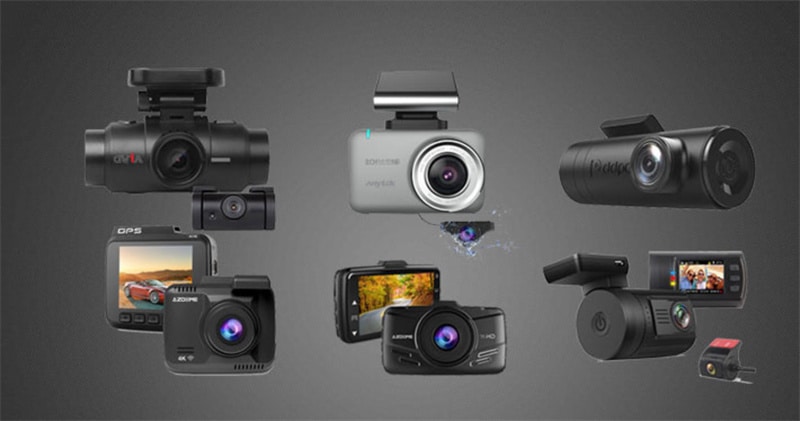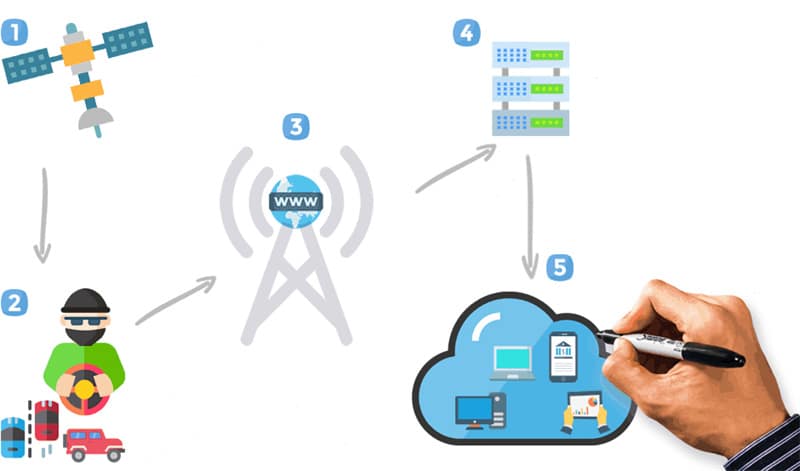
Fleet management is the management of commercial vehicles, including forklifts, trailers, trucks, and vans. By using fleet management technology, fleet managers can gain insight into their organization’s daily operations.
Up to 75% of all fleet managers across the United States rely on some kind of fleet management software to help them. Fleet management technology can also reduce fleet fuel costs, improve driver satisfaction, eliminate theft, reduce maintenance, and improve customer service.
In today’s article you will find a list of all of the evolving trends and technologies that are changing and optimizing fleet management:
1. Dash Cams

For many years now, dash cams have been at the forefront of fleet management technology. A fleet dash cam system allows fleet managers to review footage of accidents, harsh driving, and mistakes.
This ultimately gives them the opportunity to see who was really at fault and if necessary, discipline drivers. Dashcams also come in handy in rare instances of theft. They allow fleet managers to verify their drivers’ stories and take legal action against people. Dash cams are not expensive, which is another reason that they’re such a popular tool for fleet managers.
2. 5G Technology

5G technology is up to 100 times faster than 4G is. It’s being used by fleet managers not only because of how fast it is but because it also allows fleet managers to utilize self-driving cars. 5G technology makes self-driving cars safer. Self-driving cars that have 5G capability can connect to other cars, respond to traffic issues in real-time, and connect to street lights.
Self-driving cars are more relevant now than ever before, with widespread driver shortages and a lack of people interested in becoming drivers. Autonomous driving technology is going to transform fleet management, with the help of 5G tech.
3. GPS Tracking

GPS tracking is very useful to fleet managers. In the past, a truck could vanish without a trace. Today, this is impossible. Fleet managers are able to monitor, view, and track their fleet remotely, using GPS tracking.
If vehicles are moving slowly or are not arriving at their destinations according to schedule, fleet managers are able to open up their computers and watch their fleet’s activities. Not only can this prevent theft and fraud, but it can also help fleet managers to identify lazy drivers. iPhone or android GPS apps are affordable, easy to install, and are an absolute necessity.
4. Telematics

Telematics technology is helping fleet managers to ensure that their drivers are driving safely. With telematics, fleet operators can check the real-time health of their vehicles, as well as receive notifications about their vehicles.
If a driver breaks too hard, is speeding, or isn’t driving safely fleet operators will be notified. They’ll then be able to contact the driver directly and ask them why they’re not driving safely. Telematics can help to reduce fuel consumption. It can also make drivers much more productive and efficient. Telematics is transforming fleet management, making it much safer.
5. MaaS

Mobility-as-a-Service (MaaS) is one of the latest trends in fleet management. Instead of using various forms of privately-owned transportation, MaaS enables users to travel by paying once on a single mobile application. It offers on-demand transportation, reduces the complexity of long journeys, incorporates and enables digital technology, reduces the strain on public transit agencies, and is easily accessible.
Mobility-as-a-Service is a trend that’s worth watching if you follow the fleet management industry. It’s going to completely change the way that transportation companies operate. With the help of autonomous cars, profits for transportation companies could go through the roof.
6. Electric Vehicles

For many fleet management operators, fuel costs are heavily into profits. Now, operators are able to introduce electric vehicles into their fleets, which saves money. Electric vehicles are expensive to purchase but are inexpensive to operate. By incorporating electric vehicles into a fleet, an operator can keep in line with government guidance on eliminating and reducing unnecessary carbon emissions.
Fleet operators are able to install charging stations in their organization’s headquarters, where drivers can go and charge their cars during their breaks. Electric vehicles are going to transform the fleet management industry and make it infinitely more profitable.
7. Sanitation

The COVID-19 pandemic has brought sanitation to the forefront of most peoples’ minds. No longer is poor sanitation allowable, especially since scientists say that more pandemics could come in the future. Because of this, fleet management operators are going to great lengths to sanitize and make their vehicles safe. For example, some vehicles are fitted with social distancing partitions to separate the driver from the driver’s mate.
Fleet management is evolving rapidly, incorporating new forms of technology into day-to-day operations. If you’re interested in the latest trends in fleet management, then make sure you read all of the points listed in this article, so that you can keep yourself updated and informed with an industry that’s constantly changing and transforming. Who knows what the future holds for fleet management.










